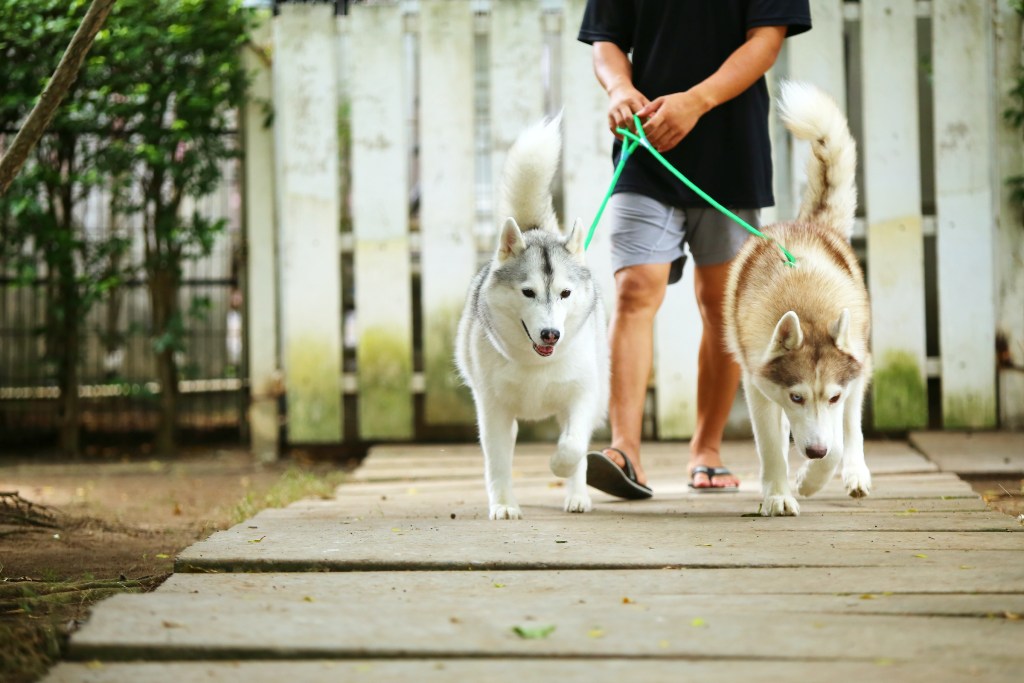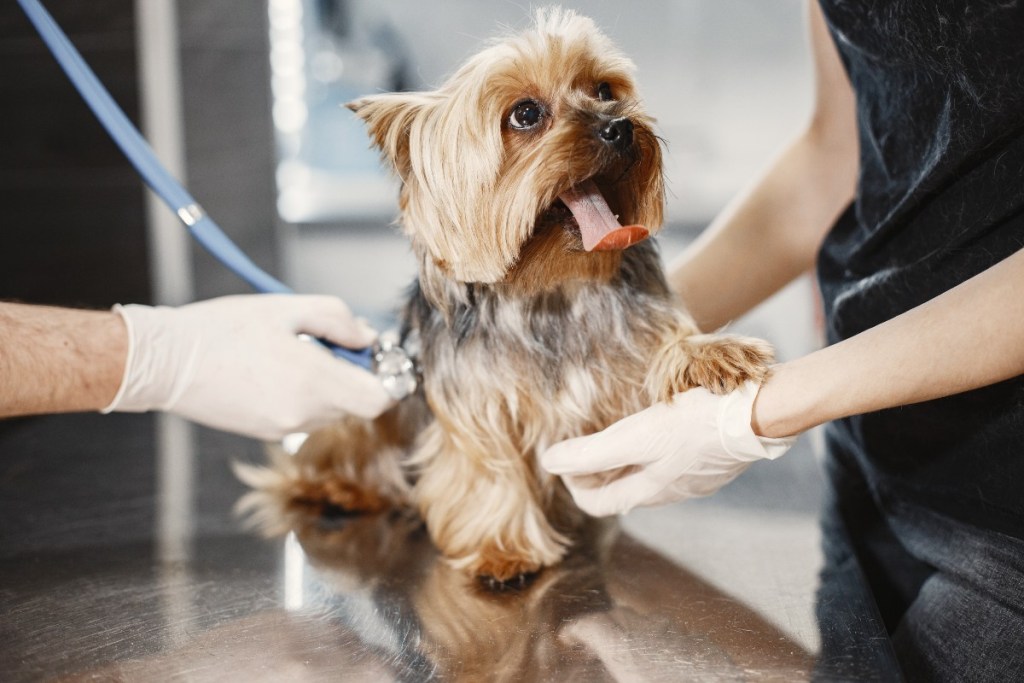
Diabetes is a common disease in humans, but it can happen to dogs, too. The definition of the chronic condition is the same for canines and people and occurs when their little bodies don’t manage sugar properly because of insulin. Insulin is a hormone produced by the dog’s pancreas that regulates glucose or blood sugar. Diabetes occurs when the dog has unregulated blood sugar. It is a chronic metabolic disorder, and there is no cure.
However, it is treatable, and your dog can continue to live a happy life despite the condition. Detection and treatment are key, so you’ll want to be on the lookout for risk factors and symptoms of a diabetic dog.
Here’s what to know about diabetes in dogs.
What are the types of diabetes dogs can get?

You may have heard of type 1 or Ttype 2 diabetes for humans. Dogs can develop different types of diabetes, too. They are:
- Insulin deficiency: The most common type of doggie diabetes, insulin deficiency occurs if the body under produces insulin. A damaged pancreas can trigger this condition.
- Insulin-resistance diabetes: This type of diabetes is less common but happens when the pancreas does not properly use insulin, despite the fact that the pancreas is producing it.
What are the common risk factors for diabetes in dogs?

Any dog can become diabetic, but some dogs are at a higher risk, including pets that are:
- Middle aged or older
- Obese
- Certain breeds (like terriers, Pomeranians, Labrador retrievers, and golden retrievers)
- Prone to chronic pancreatitis
- Take steroid medications
- Unspayed females
- Have Cushing’s disease
What are the symptoms of a diabetic dog?

Catching diabetes in your dog can ensure they get the treatment they need. Look out for these common red flags, such as:
- Increased thirst
- More frequent urination
- Weight loss
- Appetite changes
- Lethargy
- Vomiting
It’s important to note these symptoms can be the signs of other conditions — or could be completely benign. A vet is the only one who can diagnose diabetes in your dog and can do so by testing for too much sugar in the blood or urine. If you notice these symptoms, it’s best to have a conversation with your vet about further testing.
What are the risks of diabetes in dogs?

Unfortunately, diabetes can compound and contribute to other issues, such as:
- Kidney failure
- Heart problems
- Nerve damage
- Blindness
- Seizures
- Liver failure
- More frequent urinary tract infections
How can I prevent my dog from becoming diabetic?

As a pet parent, you cannot protect your furry friend from everything. Sometimes, such as with thyroid problems, it’s genetics or bad luck. However, there are some steps you can take to reduce your dog’s risk of developing diabetes. Prevention is the best medicine, so consider:
- Frequent exercise
- Ensuring 90% of their daily food intake comes from dog food with the AAFCO seal, appropriately portioned
- Limiting treats to 10% of your pup’s daily calories
- Ensuring your dog stays within the appropriate weight range for their breed
- Keeping up with annual or bi-annual vet check-ups
- Discussing risk factors for diabetes with your veterinarian
How can I treat my diabetic dog?

Diabetes is not curable in dogs, but treatments are available and can improve your pup’s health and lifespan. After a diabetes diagnosis, your vet will discuss treatment options. Most diabetic dogs will need insulin shots every day for the rest of their lives. You will also likely need to check your dog’s glucose by pricking them and inserting a test strip into a monitor. It can feel overwhelming, but you and your pet can adapt with support from your vet.
Your vet will also discuss lifestyle changes, such as diet and exercise, that can help keep your dog’s blood sugar in a healthy range. Finally, more frequent visits to the vet to monitor the dog’s status may also be necessary. Pet insurance can help you cover the costs of these treatments.
How long can a dog live with diabetes?

Sadly, it’s true that your dog might have a shorter life expectancy after diagnosis. That’s partly because pups develop diabetes usually between 7 and 10 years of age and live an average of 2.7 years more. So this puts some of these beasties well within the range of normal life expectancy. There’s also a lot you can do as a pet parent to make sure they get the most out of life, however long that may be. The most important part is to keep on top of their testing and injections. Fido can’t tell you when he feels dizzy or ill, so you’ll have to learn your fur baby’s cues as well. With the right regimen, some dogs live a completely normal life for years.
A diabetes diagnosis can feel stressful, but it’s the first step to treating the condition. Treatment is important. Diabetes can have a cascading effect throughout the body and lead to organ failure, including of the kidney and liver. The good news is that the chronic disease is treatable even though it’s not curable. Insulin shots and blood sugar monitoring can keep your pet healthy. Your vet is your best resource for information on diagnosis and treatment. That said, if your dog is not diabetic, know that prevention is the best medicine. Adhering to a healthy diet and ensuring they get plenty of exercise can lower your dog’s risk of developing diabetes.



